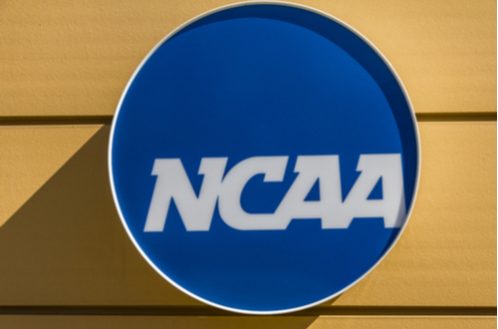
The U.S. Department of Justice has taken a significant step towards increasing the mobility of college athletes. On Thursday, a proposed consent decree was filed in a West Virginia federal court aiming to prohibit the NCAA from enforcing its controversial rule that requires student-athletes who have transferred once to sit out a year if they transfer again.
The decree, which is awaiting approval by U.S. District Judge John Preston Bailey of the Northern District of West Virginia, also mandates that the NCAA grant an additional year of eligibility to certain athletes who were previously ineligible due to the transfer rule. This provision is designed to compensate those affected by the rule for a season or any portion of a season they were unable to participate in.
“Free from anticompetitive rules that unfairly limit their mobility, Division I college athletes will now be able to choose the institutions that best meet their academic, personal, and professional development needs,” said Jonathan Kanter, Assistant Attorney General of the Justice Department’s Antitrust Division. “This resolution is a testament to the benefits of federal and state enforcers working together to ensure free markets and fair competition for all Americans.”
Read more: NCAA and SEC Approve Historic $2.8 Billion Settlement in Antitrust Cases
Judge Bailey had earlier granted a preliminary injunction in the case, which prevented the NCAA from enforcing the transfer rule during the spring sports season. The formal agreement, once approved, will solidify this change and mark a notable shift in how the NCAA regulates student-athlete transfers.
Virginia, one of the ten states that joined the Justice Department in the lawsuit, has been a vocal critic of the NCAA’s policies. Attorney General Jason Miyares, who has actively challenged the NCAA’s regulations in recent years, praised the proposed decree as a victory for student-athletes.
“The NCAA’s inconsistent and arbitrary enforcement of its transfer eligibility rule served as an illegal restraint on student-athletes’ ability to market their talent and control their education,” Miyares stated. “I’m pleased that we could reach an agreement with the NCAA over its transfer eligibility rule. This agreement not only enhances the rights of student-athletes but also provides new opportunities for them to reach their full potential – both on and off the court.”
Source: Justice Gov
Featured News
Big Tech Braces for Potential Changes Under a Second Trump Presidency
Nov 6, 2024 by
CPI
Trump’s Potential Shift in US Antitrust Policy Raises Questions for Big Tech and Mergers
Nov 6, 2024 by
CPI
EU Set to Fine Apple in First Major Enforcement of Digital Markets Act
Nov 5, 2024 by
CPI
Six Indicted in Federal Bid-Rigging Schemes Involving Government IT Contracts
Nov 5, 2024 by
CPI
Ireland Secures First €3 Billion Apple Tax Payment, Boosting Exchequer Funds
Nov 5, 2024 by
CPI
Antitrust Mix by CPI
Antitrust Chronicle® – Remedies Revisited
Oct 30, 2024 by
CPI
Fixing the Fix: Updating Policy on Merger Remedies
Oct 30, 2024 by
CPI
Methodology Matters: The 2017 FTC Remedies Study
Oct 30, 2024 by
CPI
U.S. v. AT&T: Five Lessons for Vertical Merger Enforcement
Oct 30, 2024 by
CPI
The Search for Antitrust Remedies in Tech Leads Beyond Antitrust
Oct 30, 2024 by
CPI